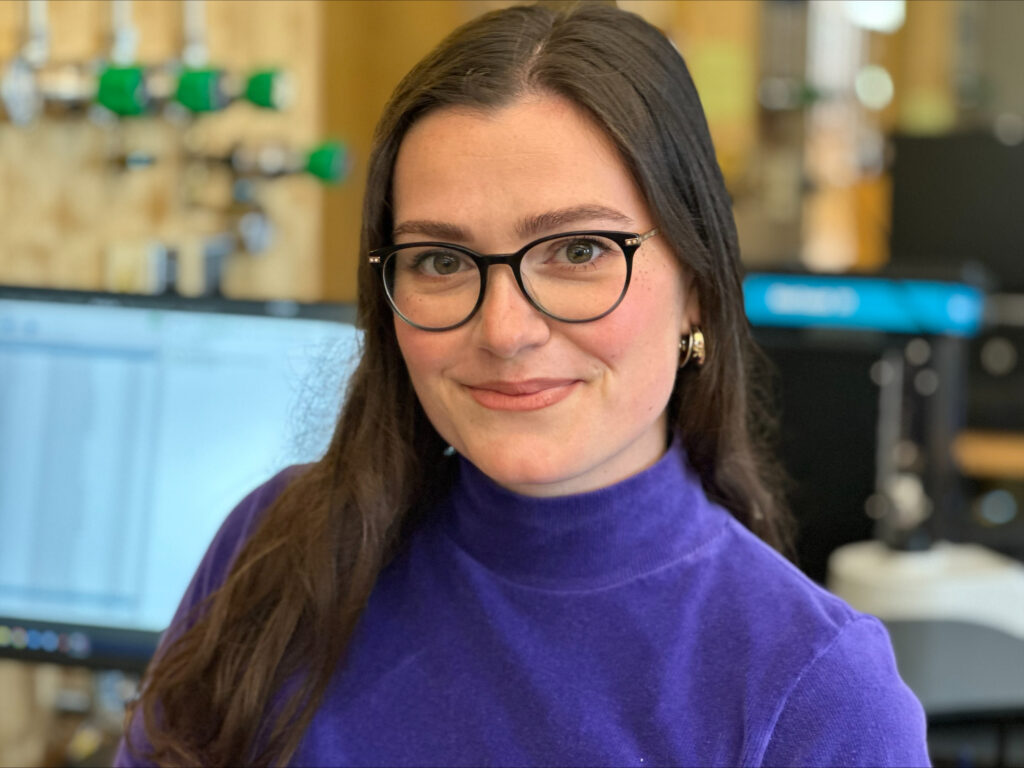During the summer semester of 2023, as part of the Dean’s Summer Fellowship, Carmella St. Pierre is working with Dr. Sutton on this project, developing skills in tissue culture, sonicating nanoparticles and measuring their size and charge on a ZetaSizer. The goal of this project is to add to the body of research showing the effects of microplastics on humans, animals, and on the environment, and to lend to the development of approaches to this worldwide problem. The hypothesis being considered is that nanoplastic contributes to the inflammation of the intestines.
Experiments use a permeable support separating an apical and basolateral compartment. On this support, a monolayer is grown consisting of an absorptive cell line (Caco-2) and a mucous secreting cell line (HT-29). The well (basolateral compartment) contains differentiated THP-1 cells that behave like macrophages. The “inflamed” model is exposure to LPS & IFN-𝛾, whereas the ‘stable’ model is not. The models are then exposed to TiO2 that has been subjected to an in vitro digestion of salivary, gastric and intestinal composition. The amount of TiO2 used has been shown not to cause inflammation. This is followed by a 72-h exposure to digested polystyrene (PS) or polymethacrylate (PMA) nanoparticles. The analysis of inflammation and cell health markers will ascertain whether the plastic nanoparticles caused an any inflammation.
If the hypothesis holds, then this work could be evidence that very low levels of such food contaminants may result in poor gut health.

